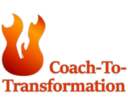

Getting to not know
- Jul 12th 2018
So Rajat said a fortnight ago “a state of not knowing” is critical to a good coaching conversation. And for me I got an opportunity to know more about not knowing when I was coaching a GAP changemaker.
GAP is Global Action on Poverty. It’s a unique organization that gives coaches (amongst other professionals) a chance to coach a “Change maker”. These are unique human beings who want to make a difference to society and bring people out of poverty.
My Changemaker was a person from the villages of Maharashtra. Who spoke in the vernacular. Passionate about making women, especially widows from the villages more financially independent. He had in his mind three indicators of progress Aarthik, Samajik and Rajakiya. Roughly translated Economic, Social and Civic. All the conversations centred around these three indicators and how they impacted women.
He had come up the hard way. A person who was born and brought up in the village. And had a basic education in a school near the village. A born activist, he wanted to make a difference to society from a young age. He came to GAP because he wanted to make a bigger difference.
And here I was. City born and bred. 100% corporate. Postgraduate. Coaching CXOs and the like. Preferred language being English. Preferred music – rock and roll. The only experience of a village was through the closed window of an AC car travelling down the highway.
I was to coach him so that he could make a bigger difference.
And for me, I came to realise it was a way to experience and get better at “not knowing”.
The first hurdle I faced was that of culture. Yes, our mother tongue was the same, but the client and I thought so differently.
I remember a time at a coffee shop. We were having a conversation and he was speaking loudly, as he normally does. To me it was unnatural, and I was feeling uncomfortable, thinking about the possible impact of his high volume on the people around. And I found myself not “being there” in the conversation. I had to consciously work at letting go. Of “not knowing” my cultural bias of talking softly. It took me some time to get back into the conversation.
Being there for the client meant that I had to put aside my notions of greeting etiquette, conversational volume and ideas of progress. It was important to have “different” as the operative word rather than words like better/worse, louder/softer, polite/rude.
Another thing I had to come to terms with is that there is no correlation between education, experience and wisdom. My client, the change maker was a younger person, much less educated but I learnt as we talked – far wiser in the ways of the world as compared to me. I went into the conversation knowing the difference in education, but I had to let go the prejudice very quickly. And just listen to the man talk and explain himself without having thoughts like “ I did not expect him to be so articulate and knowledgeable” clutter up my mind.
Not knowing about education would have helped me.
I learnt to observe and react to what he was talking about at that moment without coloring my mind about his background.
I admit that coaching a change maker brings out the aspect of differences while in a conversation very vividly. And to me it was in a sense easier, as the examples, as I have shared, are very stark and easy to acknowledge.
The real challenge is in my coaching conversations with people who are not so different from me. Because the differences are not too large I tend to overlook the bias. The bias seeps into the conversation in little ways. Depriving the client of a really good conversation and an opportunity to move ahead.
The good thing is that I am now more aware, and I catch myself knowing too much!


Rajat Garg
Rajat is a Master Certified Coach (MCC) with over 18 years of industry experience and over 2500 hours of coaching experience, helping people and organizations attain maximum effectiveness. His background includes working with CXOs, senior managers, managers and board of directors of small private companies to multi-billion dollar publicly traded organizations.









0